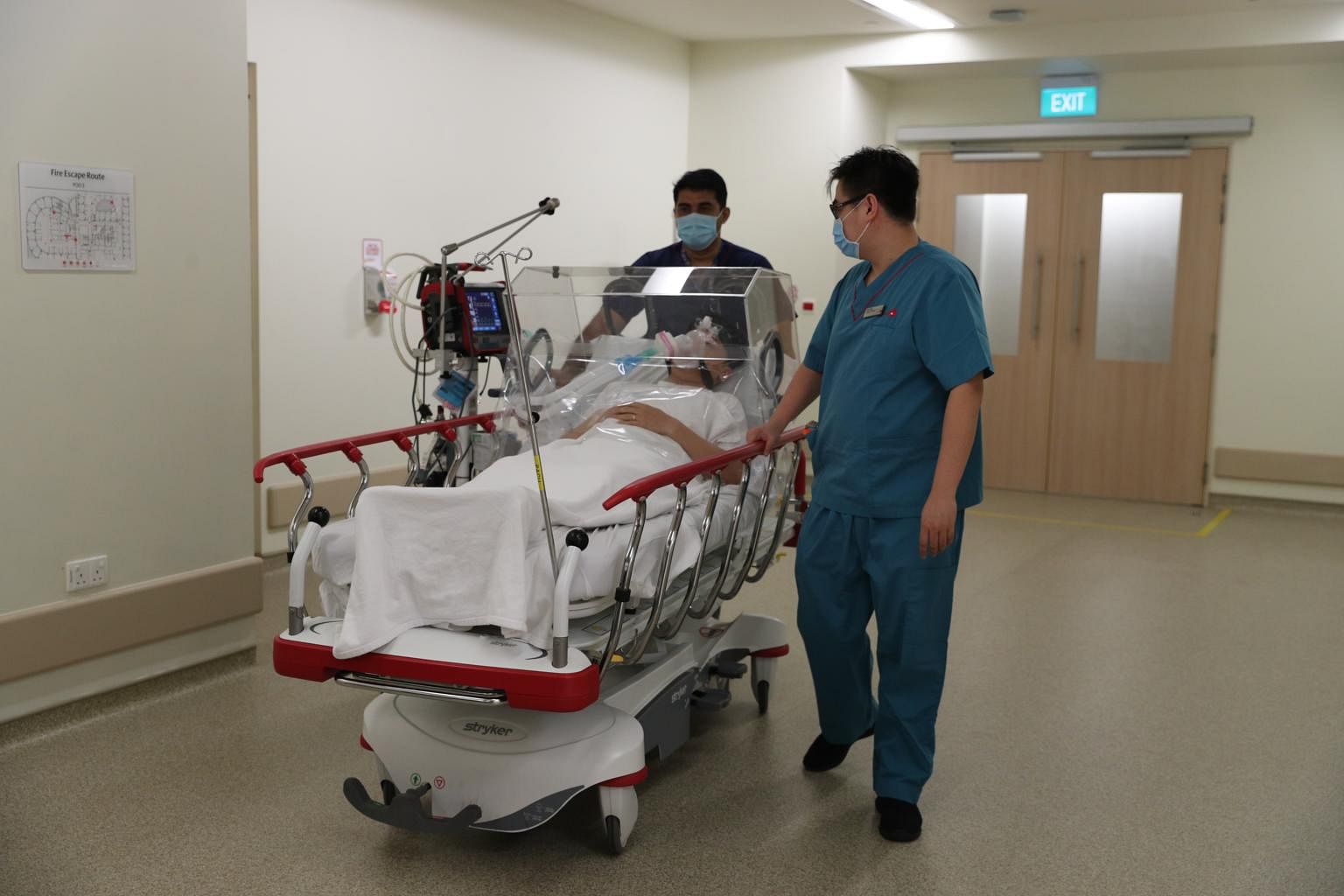SINGAPORE - A hospital has come up with new box shields that offer added protection for healthcare workers performing high-risk aerosol-generating procedures on critically ill patients, including Covid-19 cases.
The box shields, called Bio-aerosol Containment Units (BCU), will also help patients in life-threatening emergencies in the intensive care unit (ICU), with first responders able to use one to immediately provide oxygen therapy for them.
One innovation is a shield which can be dismantled into four pieces and fitted to ICU beds. A second can be fixed onto a transfer bed.
Both are unlike existing shields, which are smaller and placed over patients who are reclined flat on the bed. This means that the devices can be used while non-sedated patients are propped up on the bed, providing more comfort.
The third shield is designed for use by first responders during emergencies in the ICU, who can do CPR and provide oxygen therapy for patients immediately. This saves the three to five minutes other members of the team take to put on a battery-powered air purifying mask before they can perform aerosol-generating procedures on ICU patients.
The three box shields were designed by a medical team from Ng Teng Fong General Hospital (NTFGH) in collaboration with Ngee Ann Polytechnic's Robotics Research and Innovation Centre. Work on the shields started in March this year.
Keeping non-sedated ICU patients and those waking up from surgery propped up on their beds is vital for their comfort and ease of breathing, said Adjunct Assistant Professor Deepak Joseph, senior consultant at the hospital's department of anaesthesia, who was part of the eight-member medical team.
"When patients in the ICU have breathing difficulties, they would want to naturally sit up because when you are lying down, your lung capacity is less than when you're semi-reclined," he added.
The team believes that the detachable and made-to-fit qualities of the ICU and transfer bed shields make them a first-of-their-kind. Patients can be comfortably propped up while healthcare workers are still protected.

On top of intubation and extubation that can induce coughing, other medical procedures that can put healthcare workers at risk include non-invasive ventilation, where patients are given oxygen through a mask, and high flow nasal cannula, where medical gas is rapidly delivered to patients.
Dr Tan Chee Keat, head and senior consultant of intensive care medicine at NTFGH, who led the medical team on this project, said the shields for transfer beds are important because patients can spread infections while being wheeled from one facility to another.
"Currently, we have to deploy a security guard and cleaners to disinfect and mop the patient's path and cordon off the area," she added.
Those steps can be skipped if infectious droplets are contained within the shield.
The third and smallest box shield which is used during emergency resuscitation and intubation is similar to the droplet- and aerosol-reducing tent invented by the National University of Singapore (NUS) in June, but the new one is larger and not foldable.
The NUS device measures about 51cm by 40cm at its base and is 55cm high, while its counterpart in NTFGH is 50cm by 68cm at its base, and 60cm high.
The two openings at the head end of the three BCUs are used for medical procedures, and the openings at the sides are for serving water and medicine to patients.
Similar to other existing shields, the BCUs can be connected to a wall suction that sucks contaminated air from inside the box.
The three shields are large and spacious enough to prevent claustrophobia and to contain intubation items, said Dr Tan.
She added that the shields cost between $250 and $400 each.












